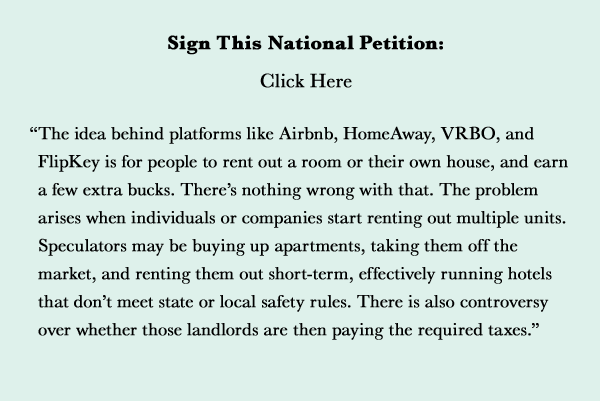Tenants Win Berkeley Elections!

Like progressives all over America, Berkeley voters are sad, angry and frightened about the national election results. However, we have a lot to celebrate at home, and can look forward to once again leading these United States in progressive, humane, and innovative solutions, particularly to the problem of ensuring safe and affordable homes for all.
The big landlords who control about 50% of all rental housing in Berkeley spent about a million dollars to defeat the affordable housing tax Measure U1, and promote their deceptive Measure DD. That is well over $15 per voter! Yet Berkeley voters reaffirmed affordable housing as a core Berkeley value with 75% voting for U1 and 71% voting against DD. This tax on large landlords is expected to generate $4 million annually in new revenue for affordable housing and homelessness prevention programs!!
East Palo Alto also passed a similar landlord tax, and it is hoped this will be a model to take back profits being drained out of our communities and use them to build homes.
Additionally, Berkeley supported stronger protections for families being evicted for owners to move in. Measure AA, which passed with an astounding 73% of the vote, was put on the ballot at the request of the Rent Board.
ProRenter candidates also got strong support from Berkeley. Renter Cheryl Davila beat incumbent Darryl Moore in District 2 despite generous spending by the Association of Realtors for Moore. BTU Members Ben Bartlett and Sophie Hahn were also elected to the City Council, and BTU Member Jesse Arreguin was elected as Mayor!
Perhaps the best news of all for tenants is that landlord incumbent Judy Hunt was voted off the Rent Board, with the “CALI Slate” chosen at the 2016 Tenant Convention easily defeating Hunt’s tiny team.
Elsewhere in the Bay Area, California gained its first new rent control in decades, and even in places like Alameda, where the tenant measure was defeated, renters did gain new protections on November 8.
Soon the new City Council will move forward on core BTU issues like Short Term Rentals and mitigations for Demolition of Rent Controlled Units. BTU will work to guide our new leaders, who we hope will be more responsive to what everyday folks need in order to keep Berkeley a place we can all call home.
ProTenant Slate Wins Rent Board, Removes Landlord Incumbent
“The 2016 Berkeley Tenant Convention, hosted by a coalition of Berkeley political groups and attended by nearly 400 Berkeley residents, selected the four CALI Slate members from nine potential candidates.”
http://www.dailycal.org/2016/11/09/cali-slate-sweeps-open-seats-berkeley-rent-board/
Victories for Affordable Housing, Tenants Rights
“Berkeley citizens voted to pass Measure U1 on Tuesday with 74.06 percent…Berkeley voters passed Measure AA on Tuesday with 72.29 percent of the vote as of press time, which will place more regulations on owner move-in evictions.”
http://www.dailycal.org/2016/11/09/city-measures-t1-u1-v1-w1-x1-y1-z1-aa-pass-measures-bb-cc-dd-fail/
Landslide for Landlord Tax
“Berkeley voters approved a landlord tax that will raise millions for affordable housing.
The measure, U1, passed with about 74 percent of the vote. A competing measure, which landlord groups placed on the ballot in an effort to undermine U1, was crushed, with 71 percent voters rejecting it…
Proponents of U1 filed a state Fair Political Practices Commission complaint against the Berkeley Property Owners Association, alleging they broke the law by using anonymous LLCs to finance their opposition campaign and make it appear that a large group of landlords were opposing the measure, when in fact it was just a handful. The FPPC hasn’t ruled on the complaint yet.”
http://www.eastbayexpress.com/SevenDays/archives/2016/11/09/berkeley-landlord-tax-easily-passes
Berkeley Gets Activist Renter as Mayor
“Arreguin said, “I am a renter. I’m like many people in Berkeley, I’m trapped in this housing crisis.”
http://sanfrancisco.cbslocal.com/2016/11/11/berkeleys-first-latino-mayor-elect-is-also-its-youngest-ever/
Progressives Take Three of Four Council Seats
“Sophie Hahn handily won the District 5 council seat being vacated by Capitelli, defeating another candidate with real estate industry backing, Stephen Murphy, 61.9 percent to 38.1 percent. Hahn is a member of the Zoning Adjustments Board. Capitelli endorsed Murphy, his appointee to the Planning Commission and the panel’s current chairman.
Berkeley for several years has been the scene of a major debate over skyrocketing rents and the shortage of affordable housing, with a six-person council majority backing many controversial development-related issues.”
http://www.eastbaytimes.com/2016/11/09/berkeley-voters-elect-arreguin-mayor/
Not Everybody Got Rent Control
“Voters in Alameda, Berkeley, Oakland, Mountain View, Palo Alto and Richmond supported some form of rent stabilization or eviction protection legislation while only Burlingame and San Mateo favored a “no” decision.”
http://www.nbcbayarea.com/news/local/Alameda-County-Voters-OK-Rent-Control-Housing-Measures-400516081.html
Details on Rent Control Votes
“Measure L in Richmond, which would enact limits on rent increases and landlord evictions, was victorious with 64 percent of the votes cast. In Oakland, with all 279 precincts reporting, 74 percent of voters supported Measure JJ, which requires landlords to get permission from the rent board before increasing rents above the consumer price index and expands eviction protections. In Mountain View, Measure V, which was placed on the ballot by voters, had a slim victory with 53 percent, while W, the council-backed measure fell short with 49 percent.
In Alameda, ground zero for the battle for rent control, Measure M1, the strict tenant rent control measure sponsored by tenants groups, only garnered 34 percent of the vote, well shy of the necessary simple majority. Instead, 56 percent of voters approved L1, a competing, council-backed initiative that did not cap rent increases. Instead landlords must go to mediation in order to increase rents above 5 percent. And in San Mateo County, Measure R in Burlingame mustered just 31 percent of voters, while Measure Q in San Mateo got 38 percent.”
http://www.eastbaytimes.com/2016/11/03/bay-area-rent-control-measures/
Oakland Gets What Berkeley Has: Details on Renters Upgrade
https://oaklandnorth.net/2016/10/28/oakland-residents-to-vote-on-rent-control-initiative-this-november/
Mountain View Gets Eviction Protections Too
http://www.mv-voice.com/news/2016/11/15/fearing-evictions-city-backs-immediate-tenant-protections
Record Spending and Fair Political Practices Complaint
“The political action committee for the Berkeley Property Owners Association has steered more than $892,540 in donations to defeat Measure U1 and promote Measure DD, two competing measures that would raise the business tax on rental units… Most of the donors to the “Committee for Real Affordable Housing – Yes on Measure DD, No on Measure U1, Sponsored by the Berkeley Property Owners’ Association,” have not made contributions in their own names. They have used the LLC they created to run various apartment complexes. UC Berkeley’s Progressive Student Alliance filed a complaint about this practice with the Fair Political Practices Commission, which is investigating the situation.”
http://www.berkeleyside.com/2016/11/07/fight-involving-measure-dd-and-measure-u1-is-costliest-in-election/
Student Editorial Contrasts Berkeley Wins with National Loss
“Moreover, Berkeley voters proved largely immune to false and misleading campaigns, easily selecting measure U1 over DD, increasing landlord taxes for Berkeley’s wealthiest landlords while still protecting both tenants and small landlords.”
http://www.dailycal.org/2016/11/15/trump-will-not-halt-berkeleys-fight-justice/
National: Senator Boxer Leads Charge to Make Popular Vote Count
http://www.nbcbayarea.com/news/politics/Senator-Boxer-to-Introduce-Bill-to-Eliminate-Electoral-College–401314945.html

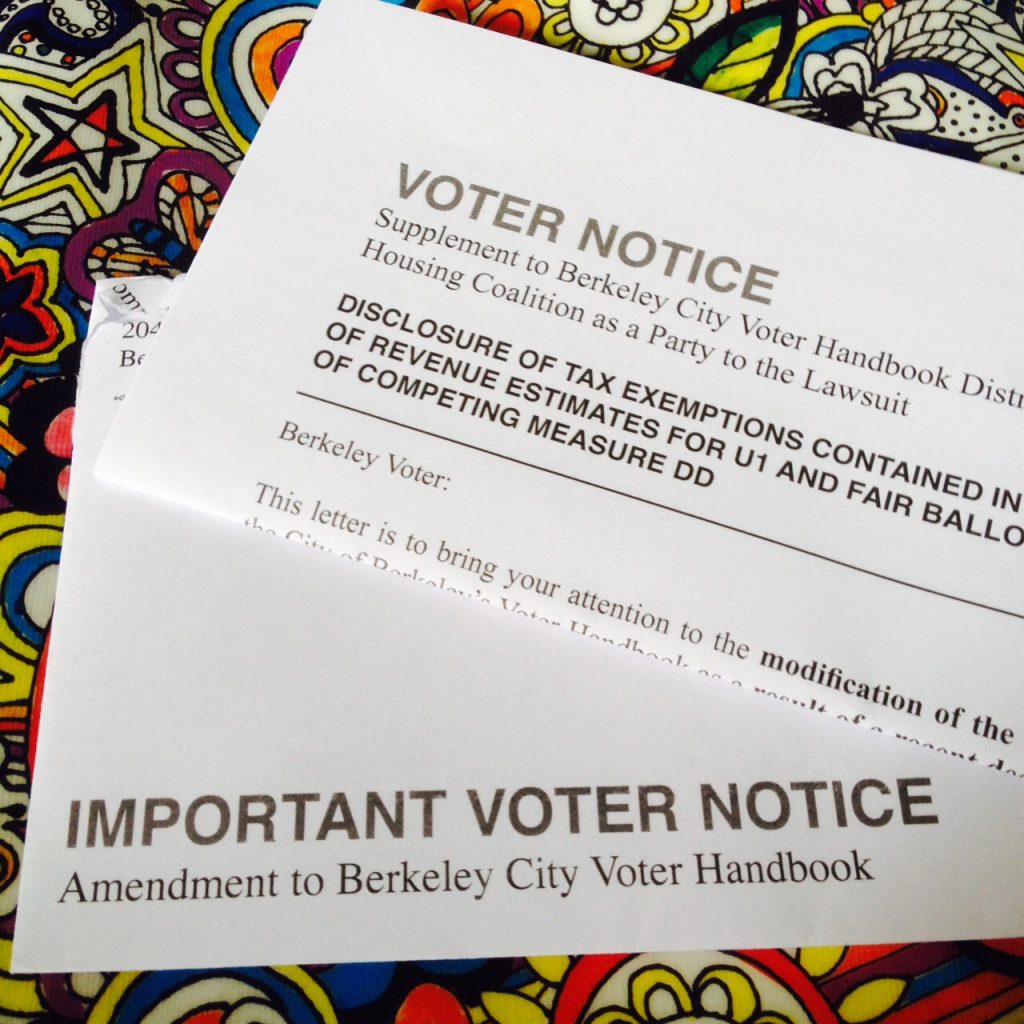

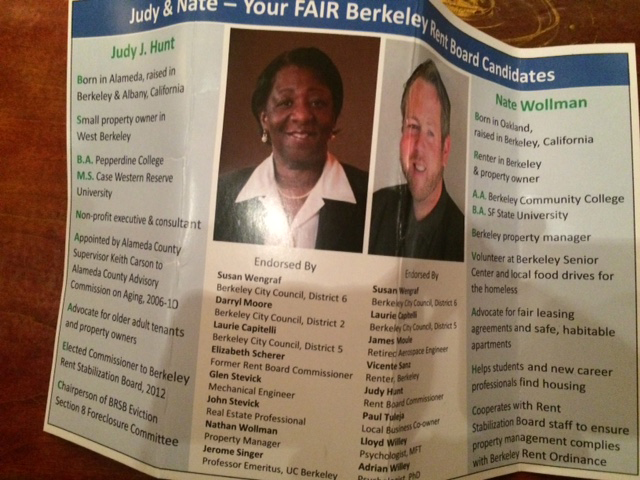

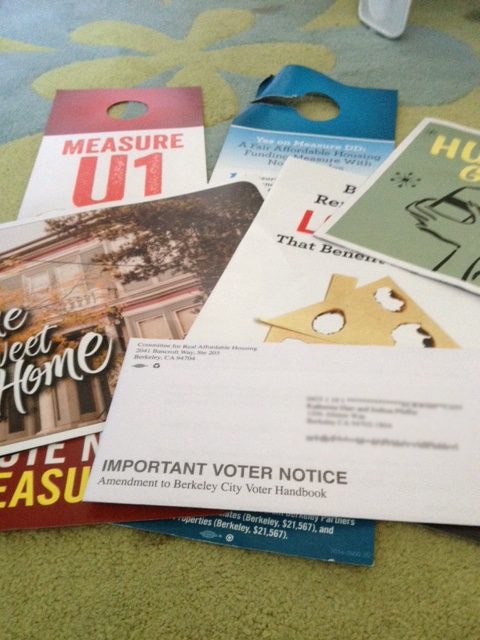
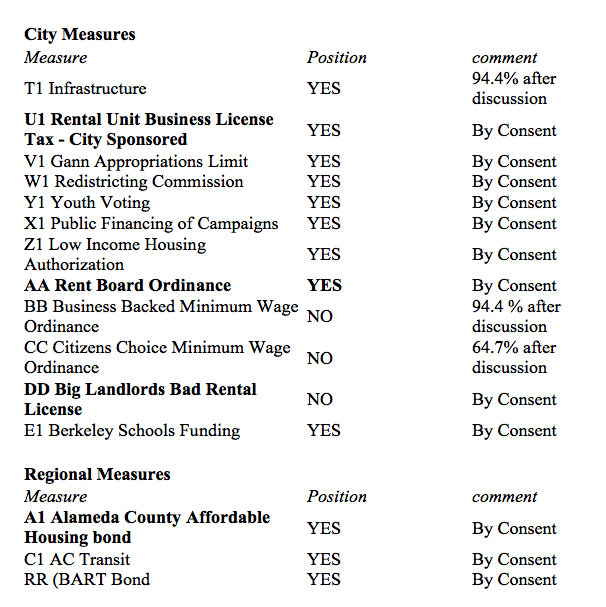
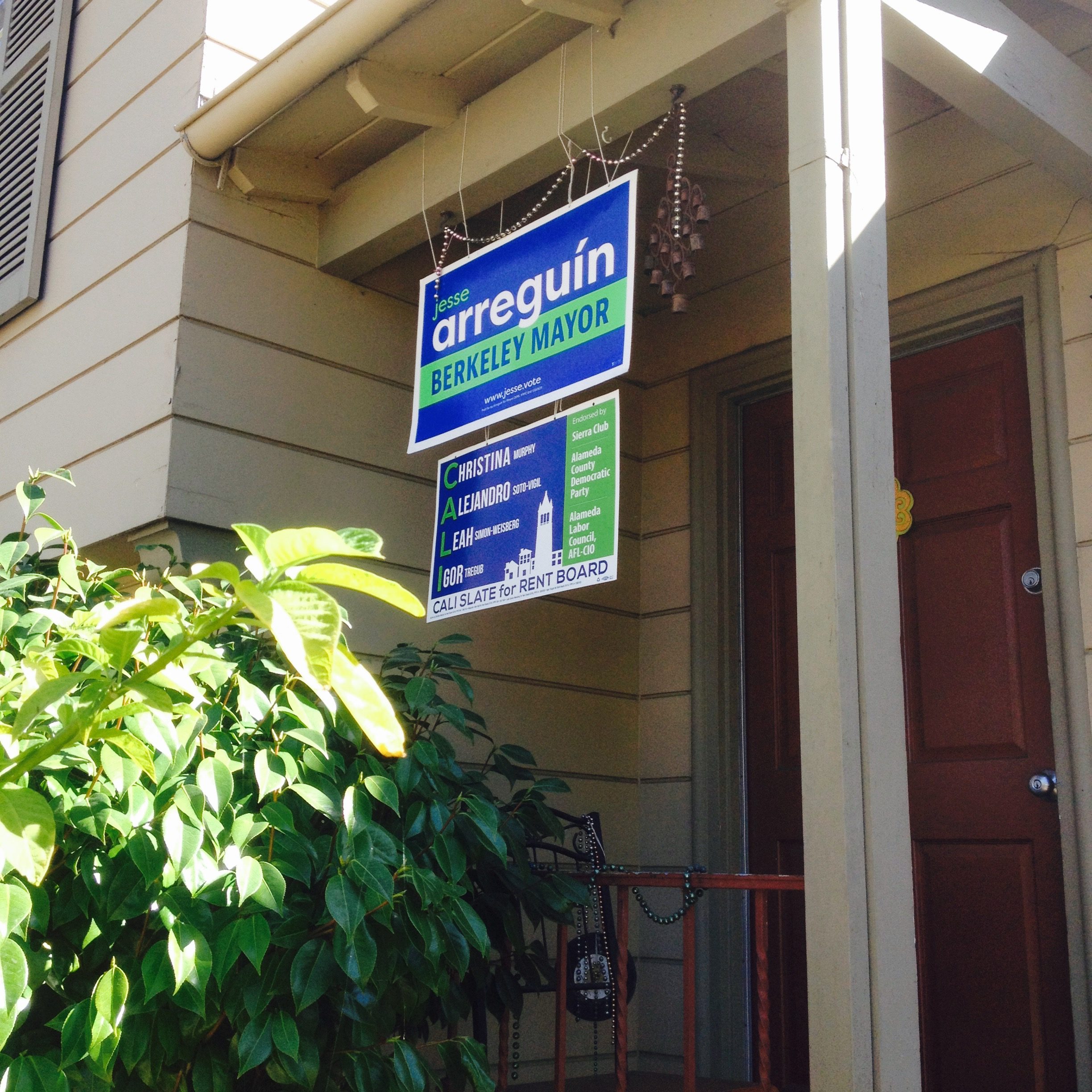

 Here is a link to the responses to our questionnaire from all local candidates who chose to answer (BPA led the questionnaire, in collaboration with BTU and BCA).
Here is a link to the responses to our questionnaire from all local candidates who chose to answer (BPA led the questionnaire, in collaboration with BTU and BCA).